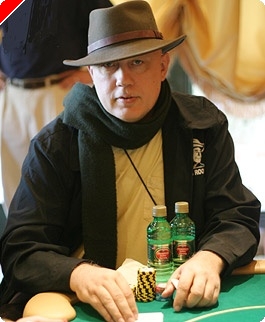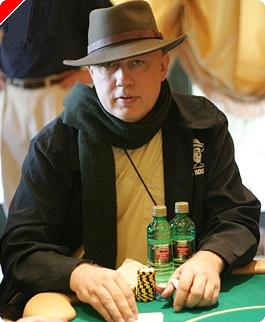Inside The Tour �C 75 �C Same Game �C Very Different Forms

Let me address an issue that seems to confuse people no matter how many times it is spoken about (this is a response to an email query). Every limit and every form of hold'em is entirely different. Let me repeat that. Every limit and every form of hold'em is entirely different. This is somewhat true in every form of poker, but it is true in spades of hold'em.
Tournament poker and cash games are entirely different animals and require different personalities playing them. Only a few players can play both forms well; Barry Greenstein, Phil Ivey, Doyle Brunson, and perhaps some others, such as Alan Cunningham. Meanwhile the cash players often think the tournament players are idiots and maniacs, while the tournament players think that the cash players are foolish and that they can play cash better than the day-to-day professional, witness efforts by Phil Hellmuth, and Men the Master, among others. There is some truth in both views, and plenty of not-looking-at-the-big-picture. This is the most dramatic of the differing views, but not at all the only such one.
Limit hold'em and no-limit hold'em are like apples and oranges. Apples and oranges are both fruit, aren't they? Well, yes, but�� Hold'em is hold'em, right? Well, no, it isn't�� Most of the rules are the same, but if you are a limit hold'em player and go into a no-limit game your head is likely to spin, you probably don't even know where you are after a half an hour! It is common in limit hold'em games to hear something like, "if it was no-limit I could've protected my hand on the flop (or before the flop, or before the river��)" but this is a declaration of stupidity, not common sense. One wants the opponent chasing as a large underdog, not forcing them out with bets that are too large to be called. In no-limit draws are a form of death if one calls with them. If you bet with them it's called semi-bluffing, and depends on your skill level as well as your ability to read your opponent.
So let me be completely clear about this, every form of hold'em is totally different. Instead of going over every way that this is true, let me list some of the ways of playing hold'em: No-limit, Limit, Pot-limit, Cash, Tournament. Unfortunately, the list starts with these five but hardly ends with it, how about the blind structure? Every blind level of no-limit, even if you play at the same casino, is very different. Don't understand this? Go to a place that spreads 1-2 blinds no-limit hold'em, then move to a 2-5 blinds no-limit hold'em game, then move to a 10-20 blind no-limit game��very soon you will get the idea. The big winners in the 1-2 game might have no chance in the 2-5 game! But the big winners in the 10-20 blind game also might have no chance in the 2-5 game! Now how about taking that 2-5 game from the Bellagio to the Venetian to the Palms, is it really the same game? How about taking it to Atlantic City? Or Austria? Now is it the same? Add antes to the game and watch it change before your eyes. How about in a tournament where they are raising the limits and diminishing your chip stack every so often? Tournaments? Don't the fast tournaments and the multi-day tournaments play a lot differently? Doesn't it matter a lot how many chips you start with, and how quickly the blinds go up?
Of course it does! Anything and everything that you wish to change makes for a different game, with a different result. So to mention any television star, or tournament player, and talk about how weak they play in money games, doesn't really matter. Kido Pham looks like a guy who is going to lose if he plays a money game, but so what? If he stays in tournaments he is likely to win. It actually amuses me to hear money players complain about the results of weaker players in tournaments. The truth is that when you play a money game, when you have deep stacks, and no antes, and no increases in your blinds, then only about one eighth of the typical tournament matches up well for you! If it is a big event with a lot of chips then it is possible for the money player to do better because something like 60% of the tournament is played in the area of his expertise.
In Barcelona I played in a tournament after losing in the heads-up event. I won early and often, and built my starting chips of 3000E to 4000E, when the hand came up that I will describe below. Roy "the boy" Brindley is on my right and puts on a display of card holding that is nothing short of amazing. First it comes AT7 and he has a set of sevens versus AT! Now that he is off the mat, he busts a number of players - remember - this is at the first level of 20-40 blinds, going into 30-60 blinds at the second level. One hand he raises from the hijack seat and gets re-raised by the big blind, it comes AAQ and they both check. On the turn the big blind makes a small bet, Roy raises, and the big blind moves all-in. The hands come over and Roy holds AQ for the nuts, and his opponent has AK, a hand which he thought he was slow-playing!
At the 30-60 level Roy raises and I call with A?8? from the cutoff, the small blind calls also and it comes 886, which looks to be a great flop for my hand. Roy bets 400 and we both call him. It comes a seven and the little blind moves all-in. Roy calls, I now move all-in, sure that Roy has KK and even if the little blind has lucked into a straight I will be a side-pot winner. Nope. Wrong again! The little blind turns up 97 and is drawing dead, because Roy has 77, the river is a 3 and I'm gone, having slow-played myself to the rail.
Until next time��play good, and get lucky!








